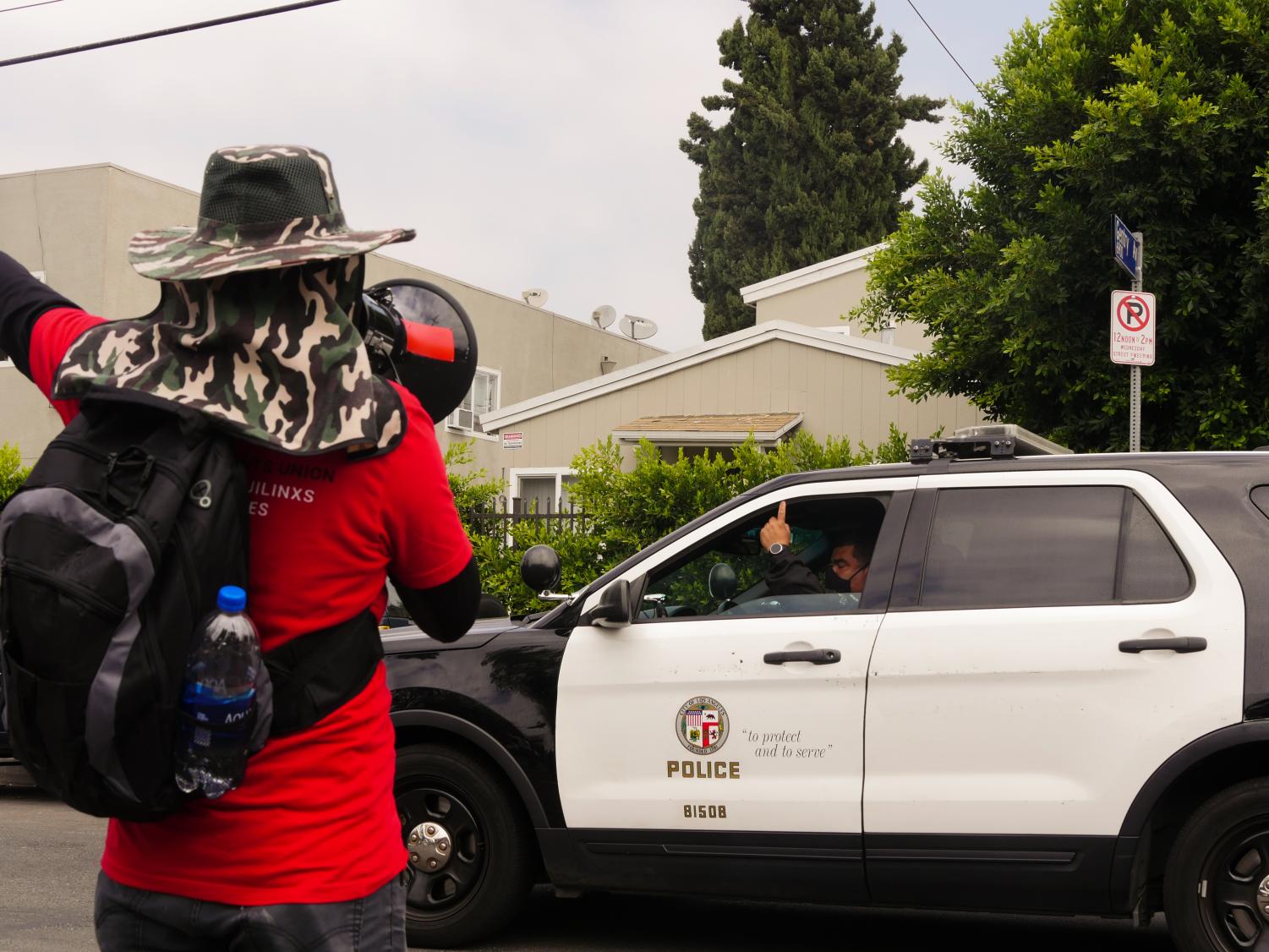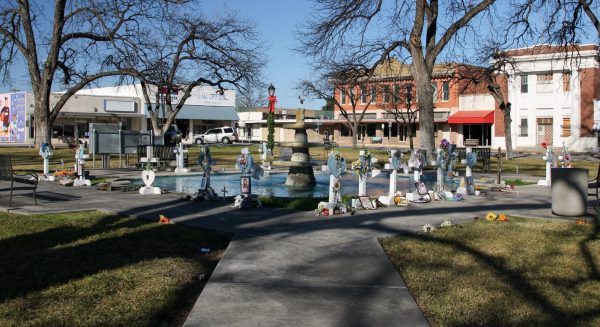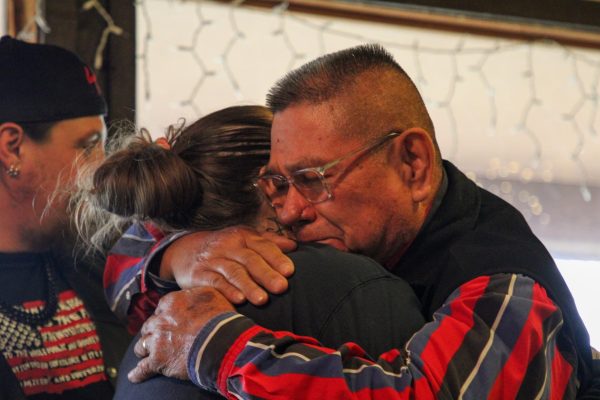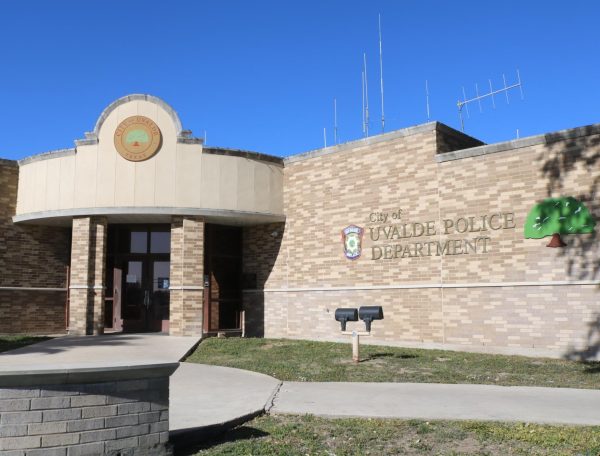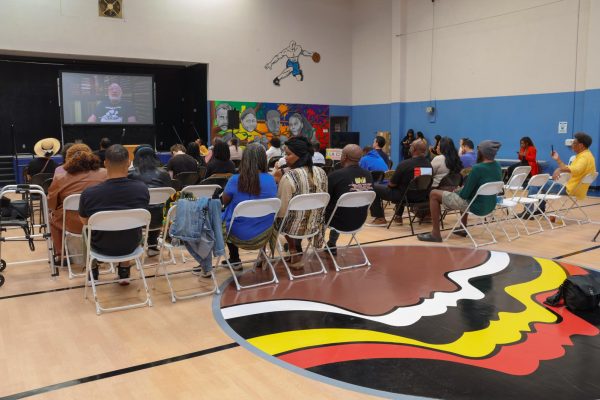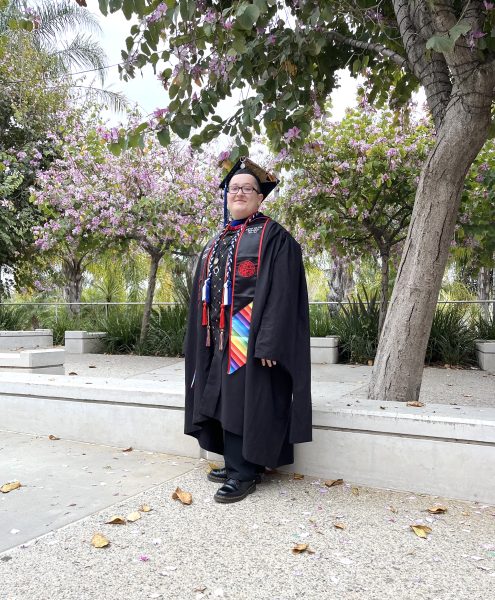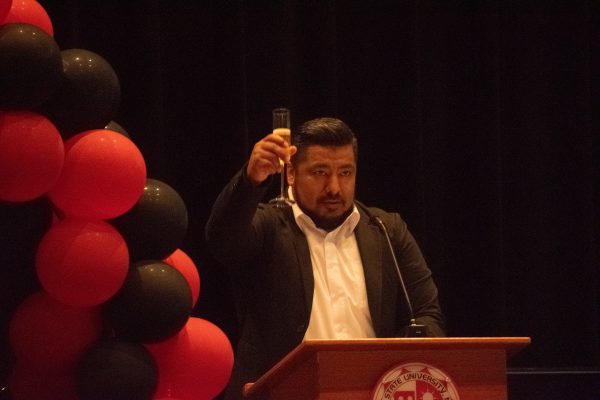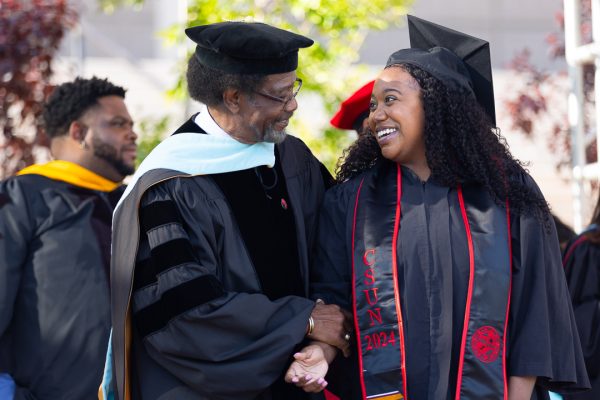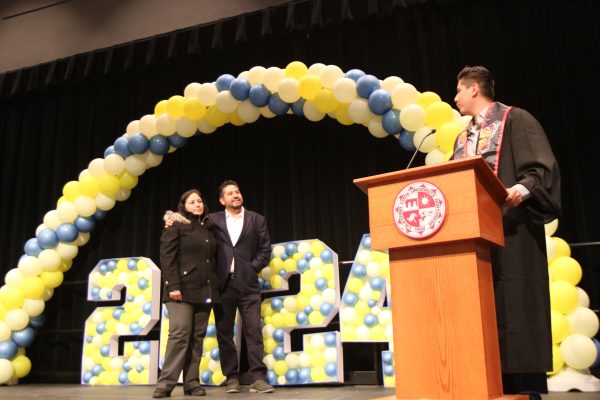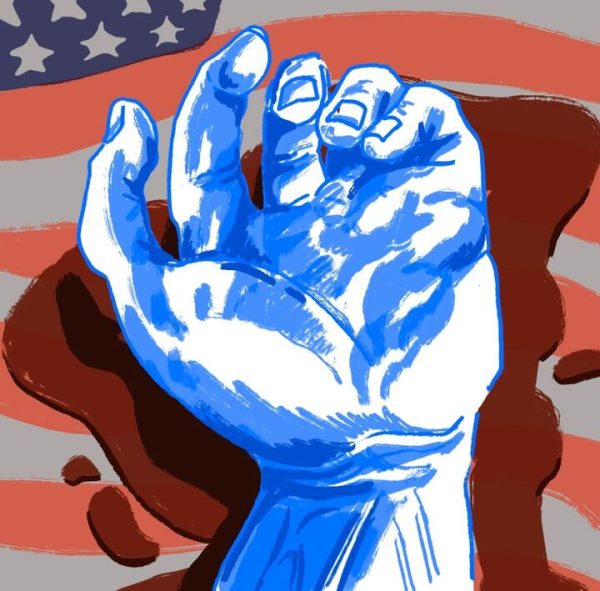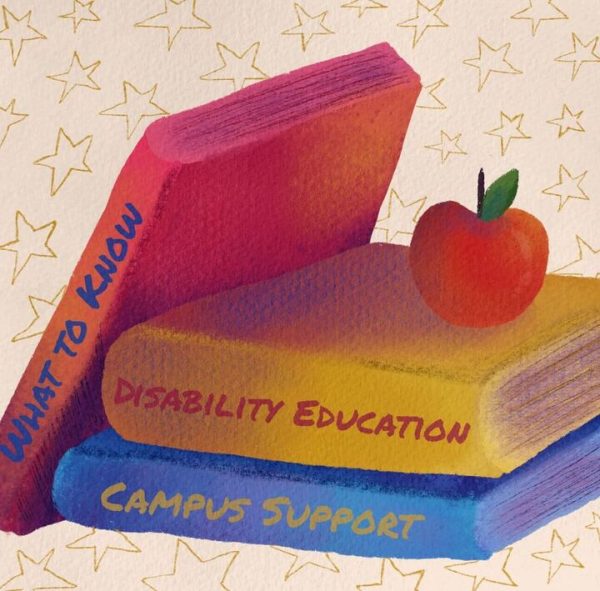Renters receive new eviction protections, but tenant activists fear it’s not enough
September 9, 2020
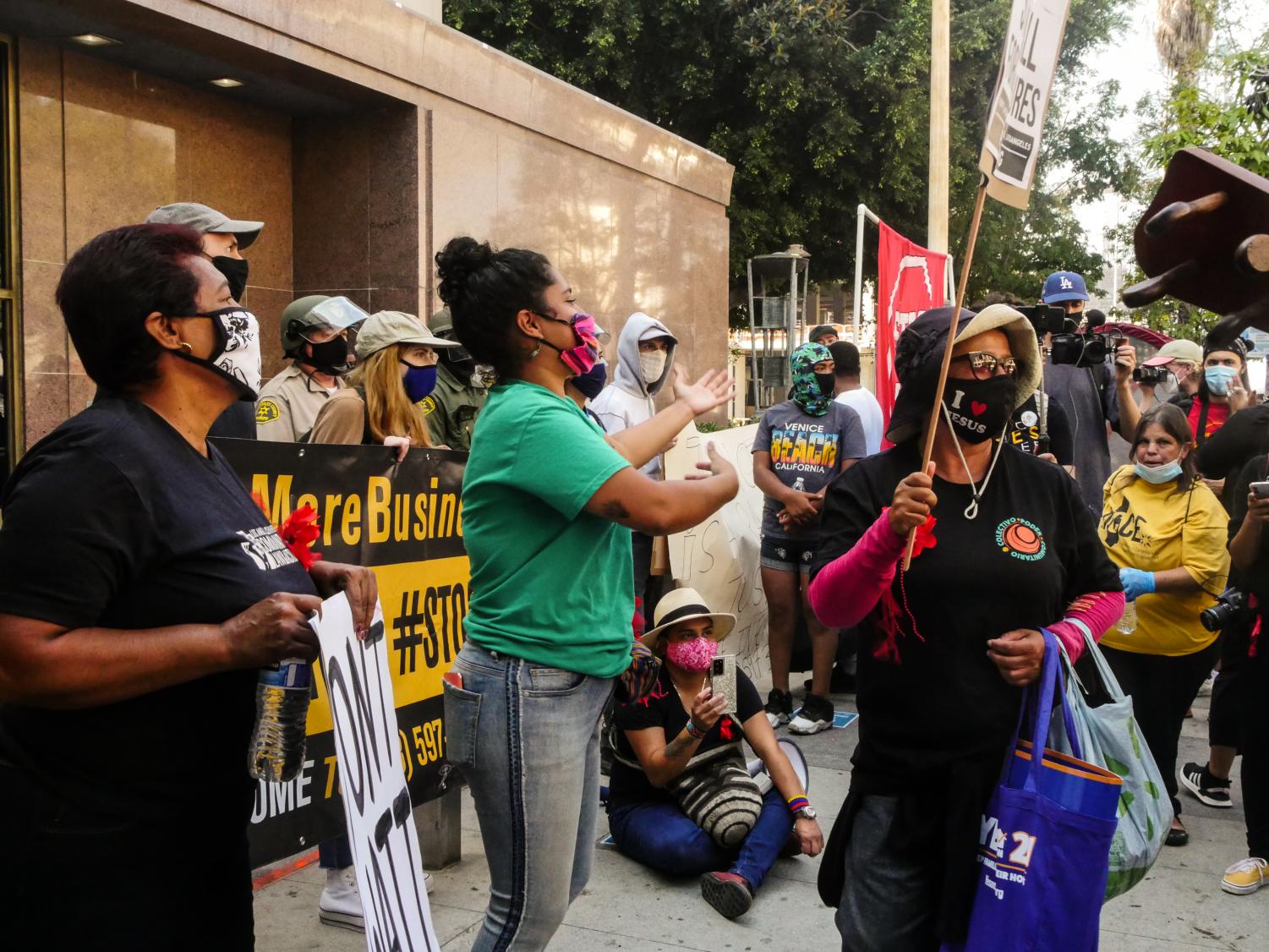
About 100 protesters formed an “eviction blockade” in front of the Los Angeles Superior Court on Thursday to protest evictions, provide support for tenants in the form of legal advice and access to representatives from tenant unions and encourage tenants to fight for their rights.
During an eviction blockade, protesters will stand outside an eviction court and try to prevent landlords from going inside. There have been several eviction blockades in Los Angeles and across the country recently.
Evictions have been a major concern for tenants and landlords during the pandemic. Since the pandemic began in March, California renters have been protected by a patchwork of moratoriums and renter protection bills that vary by city and county.
“Even if it’s a ‘legal’ eviction, we’re not going to allow you to remove this family from their home, especially not during a pandemic, especially not for a mother who has been unable to work, who has asthma … she should not be moving, she is safer at home.”
-Tony Ramirez
Member of East Hollywood L.A. Tenants Union
Gov. Gavin Newsom signed Assembly Bill 3088 on Aug. 31, a legislation that protects tenants from being evicted due to COVID-19 related financial hardship. AB 3088 was co-authored by Assemblymembers David Chiu, D-San Francisco, and Monique Limón, D-Santa Barbara, as well as Senators Steven Bradford, D-Gardena, and Anna Caballero, D-Salinas.
The bill prevents evictions until Jan. 31, 2021 for renters who have been unable to pay their rent because of difficulties experienced between March 4 and Aug. 31, 2020.
If tenants cannot pay their full rent between Sept. 1, 2020, and Jan. 31 2021, they must pay at least 25% of their rent to be protected from eviction. The bill also expands protections from foreclosures for property owners.
Under Newsom’s order, tenants are still responsible for paying debts owed and landlords can begin to collect back pay for rent starting on March 1, 2021.
“Struggling renters need protections from eviction for missed rent, and property owners need relief from foreclosure. Our agreement provides both,” Newsom said in a press release.
On Sept. 2, the Centers for Disease Control and Prevention announced federal eviction protections in an attempt to keep people from moving and interacting with those outside of their homes, to help slow the spread of the COVID-19 virus.
“Evictions threaten to increase the spread of COVID-19 as they force people to move, often into close quarters in new shared housing settings with friends or family, or congregate settings such as homeless shelters,” the CDC’s order states.
Renters who wish to take part must earn less than $99,000 a year and have to prove that they have no other option for living situations other than living in close proximity to other people. The order is effective through Dec. 31, 2021.
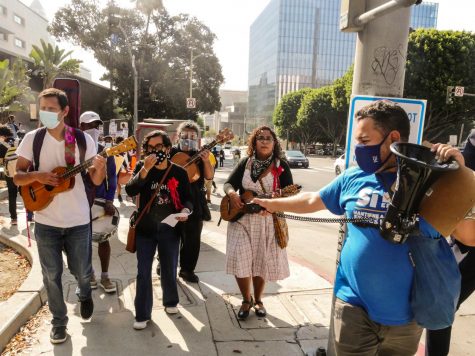
Even with mounting eviction protections, activist groups have long been dissatisfied with the protections for renters in L.A. and remain unconvinced that tenants’ needs are being met.
At the eviction blockade on Thursday, Sergio Vargas, lead organizer for the Alliance of Californians for Community Empowerment, described the “eviction cliff” that many activist groups fear — a sudden, enormous amount of debt that renters may not be able to pay even after the pandemic.
“Millions of tenants, lower class, working class, middle class, have not been able to pay their rent since March,” Vargas said. “Now with this new bill, they’re going to go [into] debt because they’re going to have to pay what could be close to $10,000.”
In early August, Betty Ordaz was evicted from her home of four years in North Hollywood. She said she normally works as a caregiver, but she is immunocompromised, so the pandemic made her unable to work.
She was given until March 24 to find a new home when her landlord filed an eviction case. However, the pandemic had just begun and she had trouble finding a place that was renting. When the stay-at-home order expired in late July, she said sheriffs served her with an order to vacate by Aug. 4.
“My heart dropped. I felt sick,” Ordaz said.
She filed for an extension to stay in her home, but it was denied. The next day, Ordaz’s landlord forced her to leave.
Tony Ramirez, a member of East Hollywood L.A. Tenants Union who came as part of a rapid response team from LATU, argued that although Ordaz’ eviction was legal, it was unacceptable for someone to be evicted at all under those circumstances.
“Even if it’s a ‘legal’ eviction, we’re not going to allow you to remove this family from their home, especially not during a pandemic, especially not for a mother who has been unable to work, who has asthma … she should not be moving, she is safer at home,” Ramirez said.
